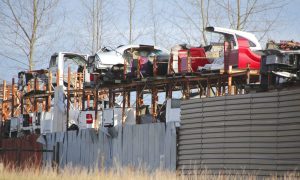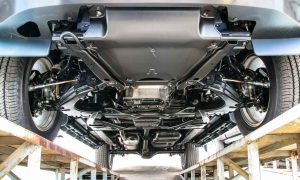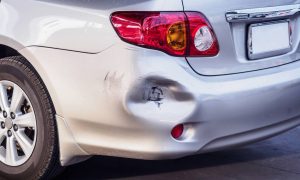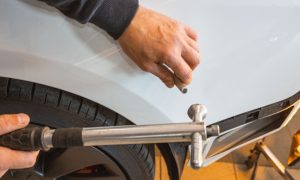Car accidents happen when we least expect them. Even minor collisions can cause serious damage to your vehicle’s frame, which isn’t always obvious to the untrained eye. Frame damage can compromise your car’s safety and lead to costly repairs down the road. Identifying frame damage early can save you thousands of dollars and prevent potential safety hazards while driving. Let’s explore what a car frame is and how to spot signs of damage.
What Is a Car Frame?
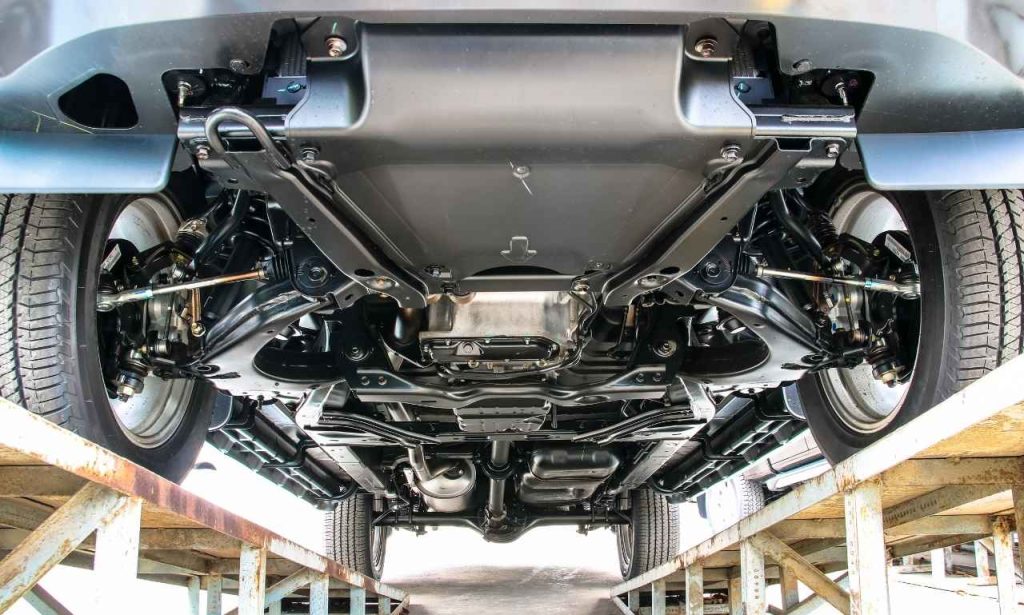
A car frame is your vehicle’s structural foundation. It supports all components and ensures proper weight distribution. Think of it as your car’s skeleton. The frame maintains the vehicle’s shape and protects passengers during collisions.
Car frames are designed to absorb impact forces during accidents. They protect the passenger compartment from deformation. Modern vehicle frames use specialized materials for optimal crash protection.
There are two main types of frames in today’s vehicles: body-on-frame and unibody construction. Each type has unique characteristics and damage indicators.
What Is Body-on-Frame?
Body-on-frame is a traditional construction method used in many trucks and SUVs. This design features a separate chassis that supports the vehicle’s weight. The body sits on top of this rigid frame structure.
This construction offers excellent durability for off-road vehicles, making them more suitable for towing heavy loads. Repairs to body-on-frame vehicles can be less complicated in some cases.
The separate components allow for easier identification of frame damage. You can often spot bends or twists in the frame rails. Pickup trucks typically use this construction method for enhanced strength and durability.
What Is Unibody?
Unibody construction integrates the frame and body into one unified structure. Most modern cars, crossovers, and SUVs use this design approach, and the entire vehicle shell acts as a structural component.
Due to their lighter weight, unibody designs offer better fuel efficiency. They also provide excellent crash protection through strategic crumple zones, as this construction distributes impact forces throughout the entire frame.
Identifying damage in unibody vehicles requires more careful inspection. The damage often affects multiple components simultaneously, and due to their integrated nature, repair costs for unibody frames can be higher.
Signs of a Bent Auto Frame
Frame damage isn’t always obvious after an accident. Small bends can cause significant issues over time. Learning to recognize the warning signs can help you address problems early.
The following indicators might suggest frame damage after a collision. When inspecting your vehicle, pay attention to these signs. Even minor symptoms deserve professional attention.
Visible Damage
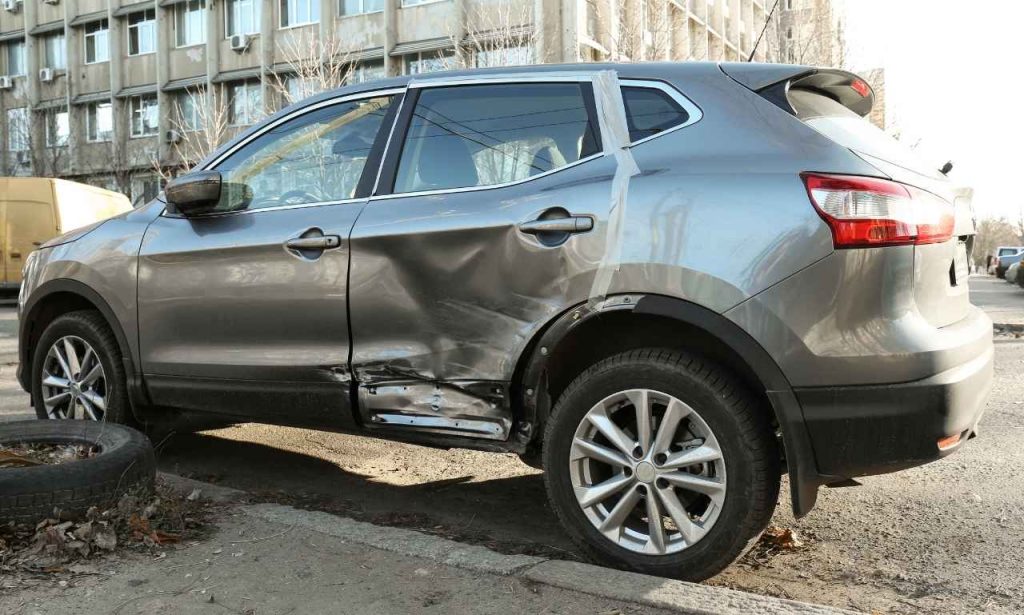
When introducing visible damage, we must understand what to look for after an accident. The most apparent sign of frame damage is visible bending or warping. Look for cracked paint, rippled metal, or bent structural components.
Gaps between body panels often indicate frame misalignment. These gaps may appear uneven or broader than usual. Check door seams, hood edges, and trunk alignment for inconsistencies.
After frame damage, the bumper might sit at an unusual angle, and the headlights appear crooked or misaligned. Even small visual irregularities can signal serious structural issues beneath the surface.
Misaligned Wheels
When discussing misaligned wheels, we should note this common indicator of frame damage. When the steering wheel is centered, your wheels should point straight ahead. Any deviation might indicate frame problems.
Uneven tire wear often accompanies frame damage. The tires might wear faster on one side than the other. This uneven wear pattern develops as wheels struggle to maintain proper alignment. Your vehicle might pull to one side while driving straight, and you may notice constant steering corrections to maintain your lane. These alignment issues typically worsen over time without proper repairs.
Warped Doors & Body Panels
We find these tell-tale signs of frame damage when exploring warped doors and body panels. Doors that won’t open or close correctly often indicate frame problems. They might scrape against the frame or fail to latch securely.
Body panels should align perfectly with adjacent components. Uneven gaps or overlapping edges suggest structural issues. Check the hood and trunk alignment for similar inconsistencies. After frame damage, windows might not seal properly, and you may notice increased wind noise while driving. Water leaks around door seals can also indicate warped door frames.
Unusual Noises
When examining unusual noises, we must recognize these critical warning signs. Strange sounds often develop after frame damage affects your vehicle. Listen for squeaking, rattling, or grinding while driving over bumps.
Clunking sounds during turns might indicate loose suspension components. These noises typically worsen as frame damage progresses. The sounds result from components no longer fitting together correctly.
Creaking noises when entering or exiting the vehicle deserve attention. Listen carefully when driving over uneven surfaces. Even subtle noises can reveal hidden frame damage.
What Is Frame Damage on a Car?
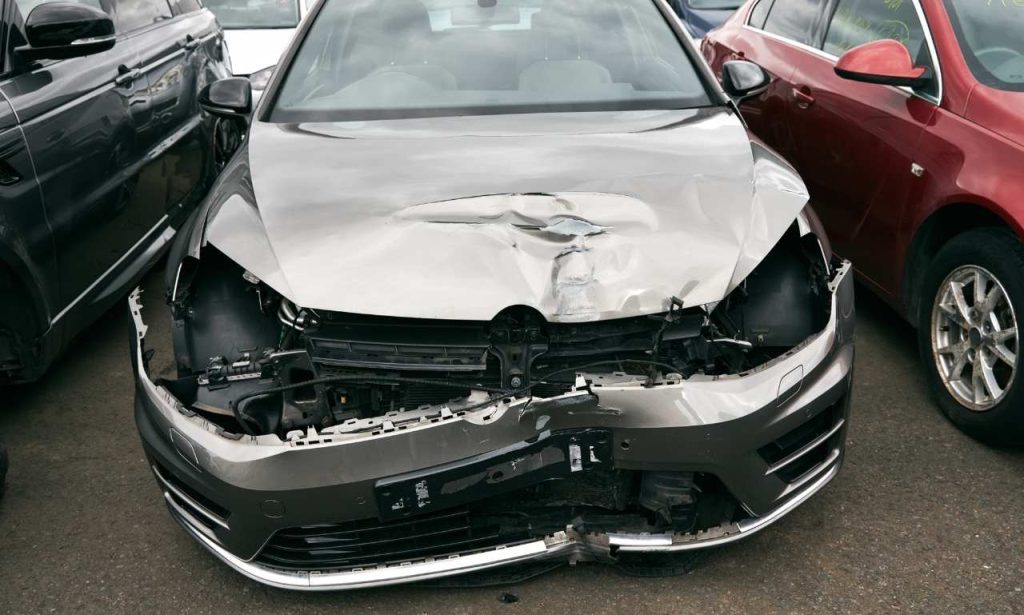
Frame damage refers to any structural deformation affecting your vehicle’s chassis. It can range from minor bends to severe twisting or breaking. The damage compromises your car’s safety and handling characteristics.
Frame damage affects crucial safety systems in modern vehicles. It can compromise crumple zones designed to protect passengers. The damage might prevent proper airbag deployment during subsequent accidents.
How to Spot Signs of Car Frame Damage
Professional inspection is the most reliable way to identify frame damage. Experienced technicians use specialized tools to measure frame alignment and can detect even minor deviations from factory specifications.
Visual inspections can reveal apparent signs of damage. Check for uneven panel gaps and misaligned components. Look underneath the vehicle for bent or twisted frame rails.
Test drive your vehicle after any collision, no matter how minor. Pay attention to handling, braking, and steering behavior. The car should track straight without pulling to either side.
Conclusion
Frame damage represents one of the most serious consequences of vehicle accidents. It affects your car’s safety, performance, and resale value. Recognizing the signs early can prevent further complications.
Don’t ignore potential frame damage after a collision. Even minor accidents can cause significant structural issues. Professional inspection remains your best defense against hidden frame damage.
It is crucial to take prompt action when you notice signs of frame damage. Modern repair techniques can often restore your vehicle’s structural integrity. Your safety on the road depends on maintaining your car’s frame in optimal condition.
Also Read: The 7 Most Common Types of Auto Body Damage
FAQs
Frame repair costs range from $600 to $10,000, depending on damage severity and vehicle type.
Yes, most frame damage can be repaired using specialized equipment, but severe damage may compromise structural integrity.
Most comprehensive insurance policies cover frame damage, but coverage depends on your specific policy terms.
Driving with frame damage is unsafe as it affects handling, braking, and crash protection systems.
Request a vehicle history report, look for uneven panel gaps, and have a professional mechanic perform an inspection.

